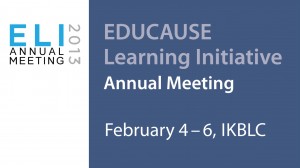Students’ unprecedented access to content on the Web is providing a unique opportunity to transform the role of lectures in education, moving the focus from content delivery to helping students synthesize content into knowledge. The University of Illinois Physics department has introduced a variety of activities to facilitate this transformation, including Web-based preflight assessments of student understanding before lecture, Web-based multimedia pre-lectures designed to provide students with content before lecture, and peer instruction (clickers) to assess and facilitate student understanding during lecture. In this presentation, Dr. Selen will discuss the pedagogical motivation for introducing these activities, and the impact they have had at their courses, including published outcomes data that demonstrate the effectiveness of using Web-based activities to enhance learning. We encourage your active participation. Ample time will be provided for discussion and building cross-discipline connections.
Speaker Bio
Mats Selen, Professor of Physics, earned a B.S. in Physics from the University of Guelph (1982), an M.Sc. in Physics from Guelph (1983), and an M.A. in Physics from Princeton University in 1985. He received his Ph.D. in Physics from Princeton in 1989. He was a research associate at the Cornell Electron Storage Ring (CESR) at Cornell University from 1989-1993. He joined the Department of Physics at Illinois in 1993 as an assistant professor, was promoted to associate professor in 1997, and to full professor in 2001. Since coming to Illinois, Dr. Selen has been a prime mover behind the massive curriculum revision of the calculus-based introductory Physics courses (Physics 211-214), and he was the first lecturer in the new sequence. He developed Physics 123, a hands-on Physics course taken by about 100 elementary education students each spring. He also started the Physics Van, an award-winning community outreach program that introduces grade school children to the fun and excitement of Physics, and is a regular on local morning television as “The Whys Guy.” As an experimental high-energy physicist, Dr. Selen has made significant contributions in several research areas including the study of charmed meson production and decay, and the design and construction of high-speed electronics.
Session Resources

